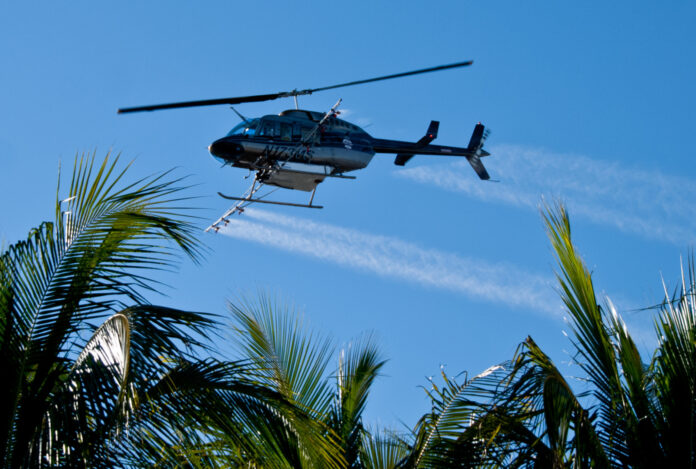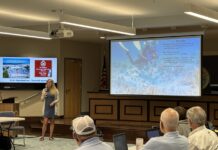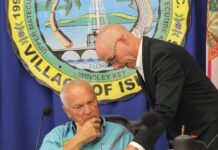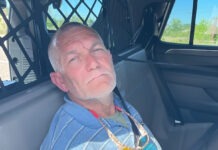
Discussion of new Trauma Star choppers, support for FWC initiatives and law enforcement, and continuing support of the Florida Keys Mosquito Control District occupied much of the Monroe County Board of County Commissioners’ Feb. 15 meeting before giving way to an extended discussion on the county’s ongoing resilience, sustainability and water quality projects.
Sheriff Rick Ramsay opened the meeting with an update on the Trauma Star Air Ambulance program, conducted in a partnership between the Sheriff’s Office, which supplies pilots and a program director, and Monroe County Fire Rescue (MCFR), which provides flight paramedics and nurses.
The program’s Sikorsky S-76C+ helicopters are 22 years old – the average life expectancy for the aircraft is 25 years – and see extensive use, with 1,386 flights in the last year alone.
With replacement parts increasingly hard to find for the discontinued model, Ramsay said MCSO, MCFR and administrative staff have begun to explore replacement options. He touted the Leonardo AW139 aircraft as the lone available model that satisfies Trauma Star’s mission parameters, noting that similar models are in use by Miami Air Rescue and Palm Beach County Trauma District.
“Our mission profile is so specific based on our geographic distance,” said Ramsay. “We need speed, we need range, and we need lift.”
The three replacement birds would carry a price tag of $52 million to purchase outright, with a slight reduction if the manufacturer nixed extraneous features unnecessary for Trauma Star’s mission. Their lifespan is similar to the program’s current helicopters.
County administrator Roman Gastesi recommended the commission move forward with the purchase, with recommendations from staff coming soon about how to finance the new aircraft. The commission voted unanimously to direct Ramsay to move forward with preliminary negotiations to purchase the aircraft.
With increased state scrutiny on special taxing districts and mosquito control programs around the state with the intent of absorbing mosquito control activities into local governments, the commission unanimously approved a resolution supporting the Florida Keys Mosquito Control District’s continued responsibility for mosquito control activities in Monroe County.
Commenting on a recent trend of dissolving special taxing districts in an effort to move mosquito control operations under the umbrella of local governments, FKMCD board chairman Phil Goodman told the commission that, “These legislatures are trying to paint all (special taxing districts) with the same ugly brush, and that’s not the case. … We certainly welcome any form of performance review.”
Of the 62 state-authorized mosquito control entities in Florida, 42 are controlled by county governments while 15, including FKMCD, are controlled by special taxing districts. Goodman and FKMCD executive director Andrea Leal touted Monroe County as one of six larger “technology centers” for mosquito control, responsible for most technological advances in containment of the pests over the last 50 years.
Goodman said the district’s proactive approach, instead of the reactive response he described in Miami-Dade during South Florida’s dengue fever outbreak in 2022, can be credited for the Keys’ ability to combat diseases like the Zika virus and dengue.
“(Mosquito control) involves a lot of science to be effective, and I don’t think we would voluntarily take on that amount of learning,” said commissioner David Rice. “I did watch a video of the committee hearing in Tallahassee, and some of the members just said, ‘Let’s do away with all the taxing districts in the state.’ That level of knowledge in that position is frightening.”
“This is an attempt to fix something that’s completely not broken,” said commissioner Holly Raschein. “We’re the gold-star model for the nation.”
In other news:
- Following a presentation by attorney Robert Spottswood Jr., the commission unanimously approved a resolution expressing support for FWC’s artificial reef program in the Florida Keys, designed to create additional man-made structures in an effort to provide habitat and protect marine resources. The commission also committed to exploring establishment of its own artificial reef program within the county government, funded by the state, private citizens or grant money.
- The commission approved a resolution in support of bringing more FWC officers to the Keys while allowing officers to use digital photography as evidence, particularly in wildlife conservation cases and resource violations.

























